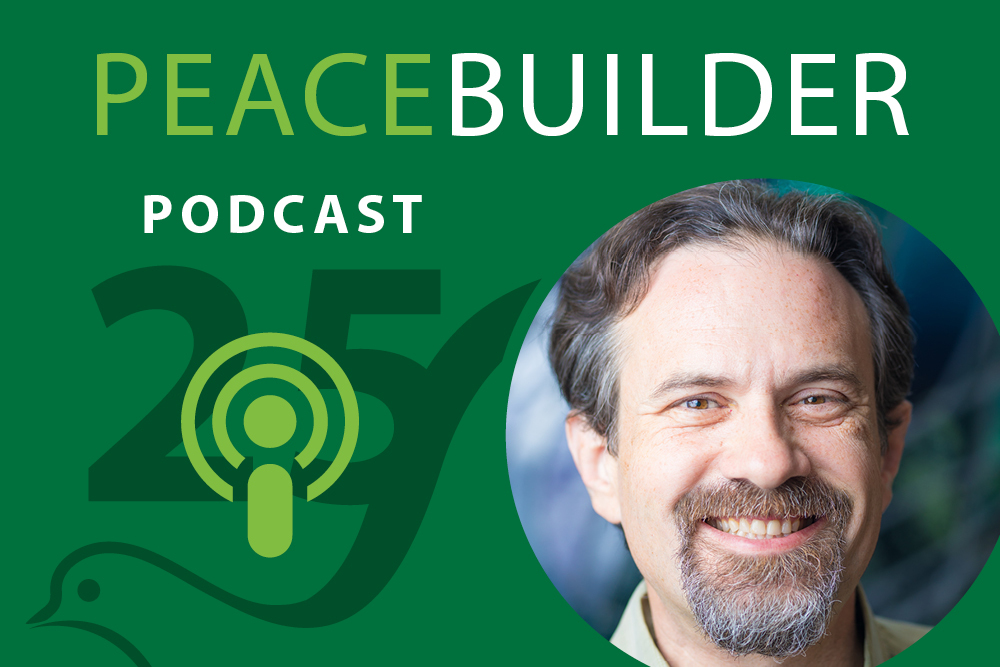In the seventh installment of the Peacebuilder podcast, Bill Goldberg, director of the Summer Peacebuilding Institute (SPI), speaks on the importance of grassroots and domestic peacebuilding, even in Eastern Mennonite University’s (EMU) own backyard and campus.
The podcast is just one of the ways the center is celebrating its 25-year anniversary. Hosted by CJP executive assistant and anniversary celebration committee chair Patience Kamau MA ‘17, the 10-episode series features faculty and staff members reflecting on the history of CJP and their own peacebuilding work. A new episode drops every other week on the Peacebuilder website.
Goldberg jokes that he “married in” to the Center for Justice and Peacebuilding (CJP) through his wife, former faculty member Lisa Schirch. His background was in international relations that often dealt with negotiations between world leaders. At CJP, though, he saw the value of grassroots-level peacebuilding.
“It actually was more important than the high level. That the high level negotiations would always fall apart if it wasn’t backed by lower level and by communities working together,” Goldberg says. He started taking classes at CJP, then picked up a few short-term contracts, like arranging transportation for SPI. He became the director in 2014.
Goldberg’s predecessors, Pat Martin and Sue Williams, taught him a lot.
“Pat had an open door policy that no matter what she was doing, no matter what time of day it was, if someone came to her office to talk, she would just drop everything and be with that person,” he says. “And with Sue, her analytical mind was just incredible,” whether it was arranging classes or “speaking truth to power.”
One major change Goldberg has witnessed in his time at CJP is a shift towards domestic work, rather than focusing on international conflicts. In his early days he recalls international students challenging the faculty and staff – “you have to fix your own problems as well as help us fix ours. And I think it took 10, 15 years for that realization to set in.”
This change has accelerated in the last few years, he says, due to fewer visas being approved – meaning domestic-born students are now in the majority at CJP – and a surge in white supremacist rhetoric across the U.S. and in Harrisonburg itself.
“It’s just become much easier to be open about racism and bigotry, and to actually be a racist and a bigot out in the open, and so we’re now seeing the need to combat that more,” says Goldberg.
While Goldberg sees this as a necessary and powerful shift, there are still ways he thinks EMU as a whole could improve: like hiring non-Christians as full-time faculty. Goldberg himself is Jewish, and while he understands the value of a Christian Mennonite university, the hiring policy “implies to others, only those who are Christian have the values to teach here.”
First published 4/14.
